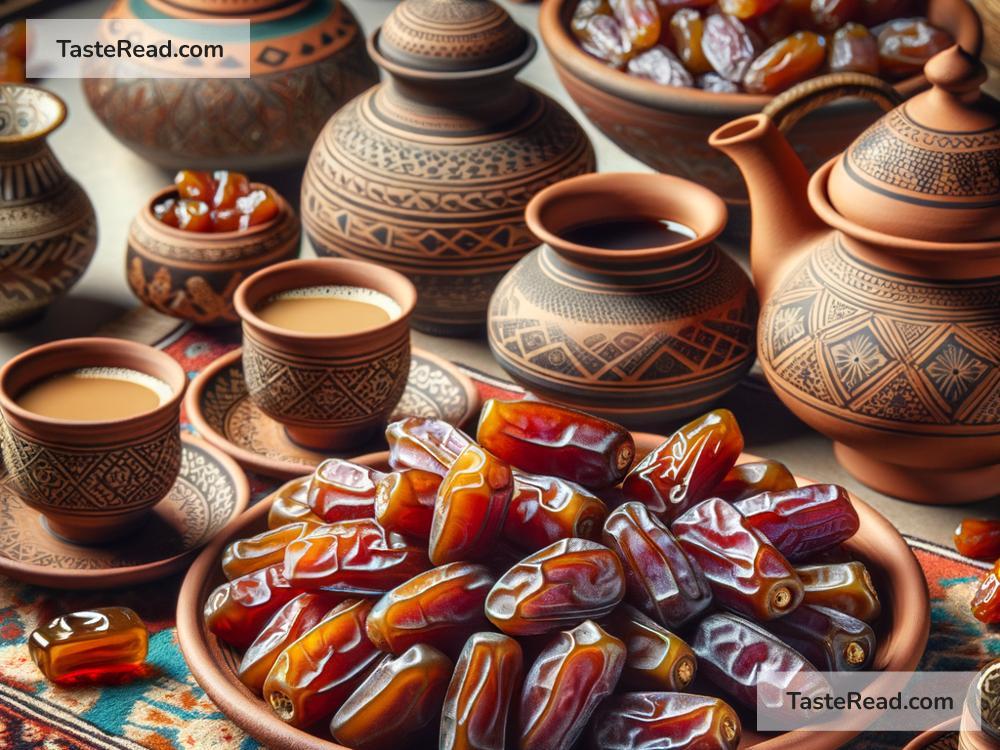The Fascinating History of Dates in Middle Eastern Culture
For thousands of years, the date fruit has been an important part of Middle Eastern culture. Small, sweet, and packed with nutrients, dates have played a role in the region’s food, economy, and traditions. More than just a tasty snack, dates tell a story of survival, trade, and connection. Let’s explore the fascinating history of dates and their influence on the Middle East.
The Origins of the Date Fruit
Dates come from the date palm tree, which is believed to have first grown thousands of years ago in the Middle East and North Africa. Archaeologists have found evidence of date cultivation in Mesopotamia (modern-day Iraq) as early as 4,000 BCE. In these ancient societies, the date palm was valued not only for its fruit but also for its versatility. Its leaves were used to make baskets and ropes, the tree trunk provided building materials, and the sap was even turned into drinks. The date palm was so essential that it became a symbol of life and fertility in the region.
The harsh environment of the Middle East made dates especially valuable. Unlike many crops that require plenty of water and mild weather, date palms can grow in hot, dry climates where other plants struggle to survive. This ability made the date palm a lifeline for desert communities, providing food and shade in places where resources were scarce.
The Role of Dates in Trade and Economy
Dates were not only a food source—they were a valuable commodity. Traders in the Middle East would carry them along ancient trade routes like the Silk Road and the Incense Route. These routes connected the Middle East to Europe, Asia, and Africa, spreading dates far and wide.
As trade expanded, date varieties began to emerge. Different regions developed unique methods of growing, harvesting, and preserving the fruit, creating distinct flavors and textures. Some dates were soft and sweet, while others were drier and chewy, making them ideal for long journeys. Even today, varieties such as Medjool, Deglet Noor, and Zahidi reflect the rich history of cultivation and innovation.
Dates became so important to the economy that they were sometimes used as currency. In fact, historical records show workers in ancient Mesopotamia were often paid in dates. They were also a key export and a source of wealth for empires in the region.
Dates in Religion and Tradition
Dates hold deep spiritual meaning in the Middle East and are closely tied to religious practices. In Islam, dates are mentioned numerous times in the Quran and are considered blessed fruits. The Prophet Muhammad is said to have broken his fast with dates and water during Ramadan, a tradition that millions of Muslims follow to this day. This act symbolizes purity and simplicity, making dates an essential part of iftar, the evening meal during Ramadan.
Dates also play a role in other traditions. In many Middle Eastern households, a bowl of fresh or dried dates is offered to guests as a sign of hospitality. During celebrations, such as weddings and religious holidays, dates are often included in feasts and desserts. Their presence isn’t just about taste—it’s about sharing warmth and kindness with others.
The Nutritional Power of Dates
It’s no wonder dates have been valued for so many centuries—they’re packed with nutrition. Rich in natural sugars, vitamins, minerals, and fiber, they are a source of energy and sustenance. In times of hardship, dates provided nourishment to those who had few other options. Because they can be dried and stored for long periods, they were especially useful for travelers and soldiers.
Modern science continues to confirm the health benefits of dates. They are good for the heart, aid digestion, and provide antioxidants that fight disease. Today, people around the world enjoy dates as part of their healthy diets, appreciating not only their flavor but also their nutritional value.
Dates in Modern Culture
While the history of dates is rooted deeply in tradition, their popularity remains strong in the Middle East and beyond. From traditional dishes to innovative recipes, dates continue to inspire chefs and home cooks alike. Stuffed dates, date syrup, and date-filled pastries like ma’amoul are common treats enjoyed across the region.
Beyond food, dates remain an important agricultural product in modern Middle Eastern economies. Countries like Saudi Arabia, Egypt, and Iran are among the world’s largest producers of dates, exporting millions of tons each year. Date festivals and fairs celebrate the harvest, showcasing the fruit’s significance in the region’s heritage.
Final Thoughts
The history of dates in Middle Eastern culture is a story of resilience, connection, and tradition. From their role in ancient survival to their place in spiritual practices, dates have touched every aspect of life in the region. They are more than just food—they are symbols of hospitality, wealth, and heritage.
Today, dates remind us of the Middle East’s rich history and the innovative ways its people have adapted to their environment. Whether you’re enjoying a sweet treat during Ramadan or exploring new flavors in the kitchen, dates connect us to a legacy that spans millennia. So the next time you bite into a date, savor not just the taste but the story it carries.


